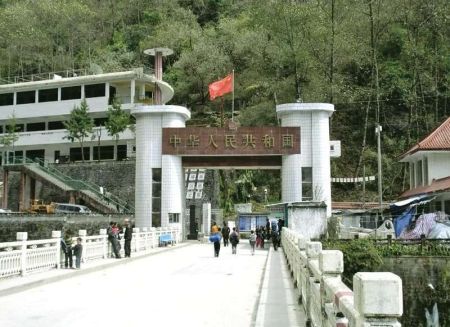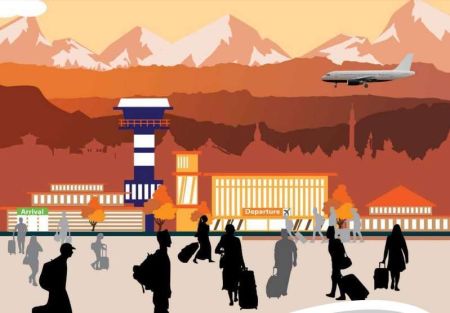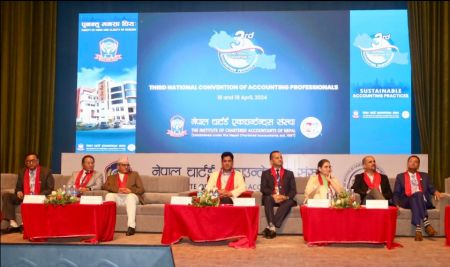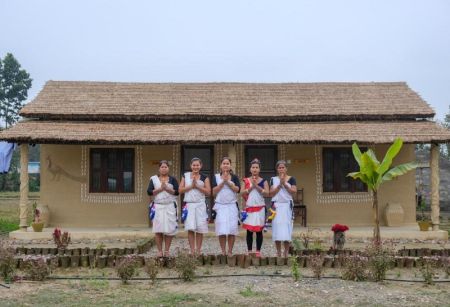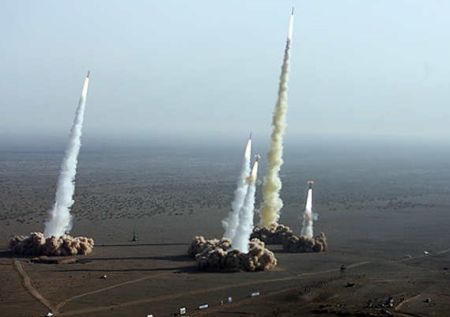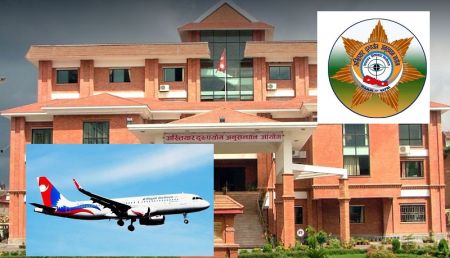.jpg)
--By Gaurav Aryal
Junar farming has changed the lives of as many as 7500 farmers in Sindhuli. When this citrus fruit also known as sweet orange was cultivated and produced at the individual level, there were many who believed that Junar trees won’t bear fruits of prosperity. But around one and a half decades later, same people now own vehicles and also educated their children with the earnings made by selling Junar, says Dipak Prasad Koirala, Chairman of Junar Central Co-operative Union Ltd.
Koirala says that 8000 to 12000 metric tonnes of Junar is produced annually in Sindhuli. And, farmers make an annual transaction of Rs 400 million in the district. With the rise in income and profitability of farming Junar, youths in Sindhuli do not prefer going abroad as migrant workers, says Koirala. A household at least makes Rs 50,000 to 60,000 from Junar in a year. Koirala adds that there are families who earn up to Rs 1.2 to 1.3 million in a year just by selling Junar.
The turnaround did not happen overnight. It has been 16 years since Dipak Prasad Koirala first sensed the problem of farmers and took first steps to solve them so that farmers at large can benefit. The same initiative has won Surya Nepal Asha Social Entrepreneurship Award in 2013 for him.
 |
| Dipak Prasad Koirala Chairman Junar Central Co-operative Union Ltd |
The Social Initiative
Koirala, born in an agricultural family hardly had enough money to finance his higher education. After completing his school level education from the village, in Sindhuli, he travelled to Kathmandu for pursuing higher studies. He joined a college and self financed his studies by holding a job. Meanwhile, he was lured to the trend of going abroad for employment in the late 1990s. He had dream of going to Israel for a job in a printing press. So, he went to Sindhuli for making the passport. The time he made the official visit to his hometown was the season for Junar harvesting. His family also owned Junar trees and Koirala was once awarded for producing best quality Junar among 150 participating farmers in 1995 in a local farm produce exhibition.
He was familiar to the woes of farmers while selling the ripe fruits in the market. They had to carry baskets of Junar to district headquarter, Kamalamai, walking for up to 12 hours to sell their produce. Koirala recalls that it was extremely difficult to see their products in the absence of a proper market. He says that farmers too were not being able to sell Junar and nobody would come to buy from them. Koirala says that more than 80 per cent of the production used to be wasted. And, the limited quantity carried to the district headquarter by farmers themselves was also purchased by middlemen and that practice did not pay the right price to farmers.
Seeing this problem, Koirala who was on the visit to make passport thought, “I am not able to sell the products that are at home; how would I go abroad and work for others?” Then, he dropped the idea of going abroad and decided to settle down in the village by finding ways to market Junar. The first thing he did was gathered labours for carrying Junar to the district headquarter from where it was supplied to cities like Biratnagar, Janakpur, Kathmandu and Butwal.
Eliminating Middlemen
Koirala felt that the existence of middlemen is not good for farmers as they have not been receiving the right price for their products. A Junar fruit bought from farmers at the price of one rupee was sold at up to three rupees in the district headquarter. So, the first task was to remove middlemen. Now, if a kilogram of Junar costs Rs 30 in the district headquarter, farmers in village get Rs 16 to 20.
The approach taken by Koirala for this was the unification of farmers at the local level. Initially, an NGO was registered named Junar Development Association. And, farmers were organised in the groups. Then those groups were brought under the Junar Central Co-operative Union. The same groups have now been developed as cooperatives. There are now 40 cooperatives in Sindhuli run by Junar farmers.
Once they were united, they also had access to the local authorities such as VDC, DDC and political parties. The unified approach helped them get rid of middlemen. Koirala says that there is no one now as middlemen between the market and the farmers.
Farmers after getting the right price to their products, they have been encouraged to do Junar farming in the area. The Junar farming has been commercialised and farmers have at least 50 to 150 trees at their Junar orchard. Likewise they do not have to depend on the technicalities of Junar crops like disease control on any organisation. Those technologies that were not available in Nepal have been brought from other countries like Japan. Farmers are trained and provided with hand-outs and guides to solve problems of the crop.
Building the Ground
While the union was formed, Koirala and the team had a vision to develop minimum physical infrastructure including road, provide technical skills to farmers, make Junar farming profitable and remove middlemen. Koirala says that all of these objectives have been met.
Similarly, the groups formed under the union have now grown as cooperatives of farmers that have also become the means to access financial services. Members of the groups initially began making compulsory monthly saving of five rupees every month. The larger groups have now grown with total deposits of up to Rs 10 million and 500 members while, small groups too are now cooperatives with up to Rs 1 million deposits. With the existence of cooperatives formed by farmers, they do not have difficulty borrowing up to Rs 100,000 collateral free loan at the time of financial requirements. There are 34 Junar cooperatives in Sindhuli and 15 in Ramechhap district.
Likewise, a cold store with the capacity of 500 metric tonnes is also built where Junar can be stored. Fruits collected from collection centres are stored there before transporting to the market. The utilisation of the fruits production is being taken to the next level with the establishment of a juice factory in the village. A model factory of Nepal, according to Koirala, is being built with the joint investment of farmers and the private sector. Rs 50 million is being invested for its establishment. He shares that the factory will come into operation by the next Junar season. 50 per cent of ownership of the factory remains with the farmers while rest remains with the corporate houses. Koirala says that such model is adopted to utilize expertise and experience of the business sector on marketing in national and international markets. It is not only the domestic market that is being explored. Koirala is planning to export Junar to China. Koirala says that 500 tonnes of Junar will be exported to China in the coming season.
The Community Effort
Koirala feels that the reason behind the success of his initiative is the involvement of the community. The initiative with the ownership of community has benefited farmers and also sent a positive message to other farmers too. Koirala says, “The confidence of farmers has increased and most importantly, their positive perspective about doing something is a more significant achievement.”
Had the initiative been Koirala’s personal venture, he thinks he might have made more money or may have been known better or the entire thing could have never been successful. He gives credit to farmers and the team that started the union and their collective contributions for the successful adoption of cooperative farming.
Koirala is planning to develop Sindhuli as a model district not only for Junar but also for other crops. He says that future models will also link producers to the industries by creating a value chain so that profit goes to the farmers too. Koirala, who is 34 years old does not see problem of leadership in the future as he has seen capable people to lead the initiative being groomed in various cooperatives within the district.





